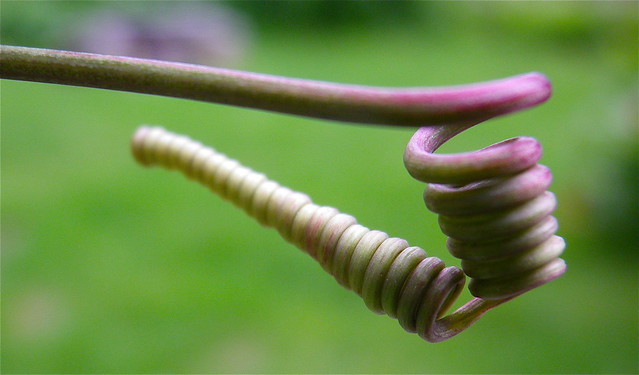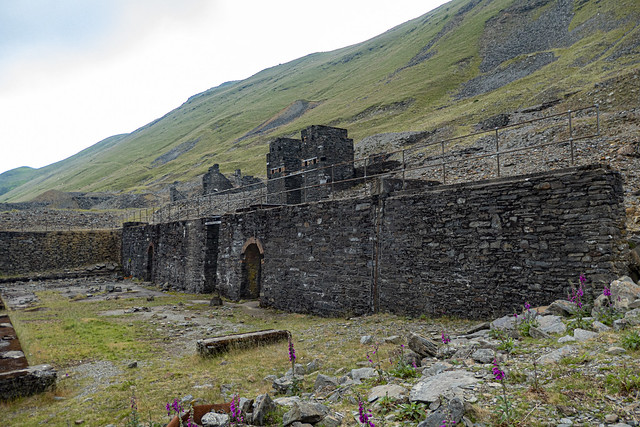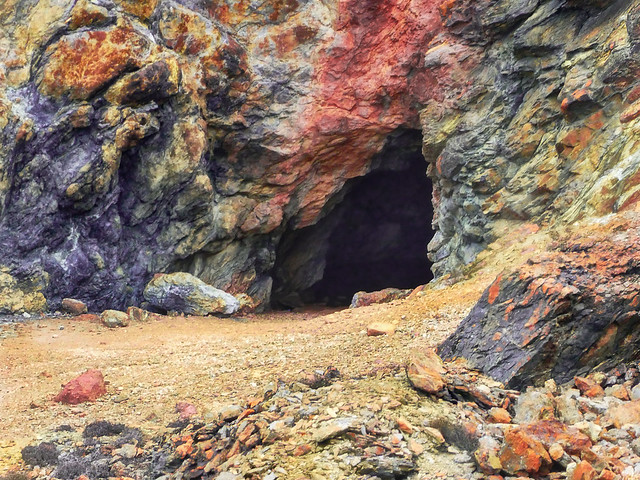Today we’re looking at the words for empty, soft and related things in Celtic languages.
| Proto-Celtic | *wāstos = empty |
|---|---|
| Old Irish (Goídelc) | fás = empty, vacant, deserted fásaogod to empty, despoil |
| Middle Irish (Gaoidhealg) | fás = empty, vain, futile, vacant |
| Irish (Gaeilge) | fás [fˠɑːsˠ / fˠaːsˠ] = waste, vacant, empty, void; wild, luxuriant fásach = waste, desert; uncultivated, uninhabited region; empty, deserted place fásaigh = to lay waste, leave uncultivated |
| Scottish Gaelic (Gàidhlig) | fàs [faːs] = empty; barren, waste, uncultivated, fallow, desolate fàsach = desert, wilderness, empty place fàsaich = to depopulate, lay waste to a place, desolate fàslach = hollow, void, cavity fàslail = desolate, lonely, solitary |
| Manx (Gaelg) | faase = feeble, weak; desolate, void, barren, infirm faasagh = desert, desolate, waste place, wilderness faaselagh = weakest part, poor part of lawn faasoil = desert |
Etymology: from the Proto-Indo-European *h₁weh₂- (to leave, abandon) [source].
| Old Irish (Goídelc) | folam = empty |
|---|---|
| Middle Irish (Gaoidhealg) | folam, falam = empty, uninhabited, shallow, barren, destitute, vain, worthless folma = emptiness |
| Irish (Gaeilge) | folamh [ˈfˠɔl̪ˠəvˠ / ˈfˠaːl̪ˠə / ˈfˠɔlˠuː] = empty folmhaigh = to empty, discharge, exhaust; purge, evacuate folmhach empty, vacant, sapce, gap (between teeth) |
| Scottish Gaelic (Gàidhlig) | falamh [fal̪ˠəv] = empty, hollow, void falamhachd = emptiness, voidness, vacancy, vacuum, void falamhaich = to empty, void, evacuate falamhaichte = emptied |
| Manx (Gaelg) | follym = void, flat, shallow, barren, vacuous, waste, blank, empty, hollow, blank folmaghey = to empty, void, hollow, vacate, deflate |
Etymology: possibly from the Old Irish lomm (bare, naked, smooth) [source].
| Middle Irish (Gaoidhealg) | cúacca = empty |
|---|---|
| Proto-Brythonic | *gwag = empty, vacant |
| Old Welsh | guac = empty, desolate, vacant |
| Middle Welsh (Kymraec) | gwac, gwag = empty, desolate, vacant |
| Welsh (Cymraeg) | gwag [ɡwaːɡ] = empty, desolate, vacant, void, barren; meaningless, senseless, unsubstantial, frivolous, null and void, invalid gwagedd = vanity, vainglory, conceit, empitness, unreality gwagio = to empty, make empty, become empty gwagle = empty place or space, vacuum, void, gap, chasm, space |
| Middle Cornish | gwag = hungry, vain, void, vacant, at leisure; void, vacuum, hunger |
| Cornish (Kernewek) | gwag = blank, empty, hollow, hungry, unfurnished, unoccupied, vacant gwaga = to break into a cavity gwagen = blank gwagla = vacancy gwagva = vacuum gwakhe = to empty, vacate |
| Middle Breton | goac = soft, tender goacat = to soften |
| Breton (Brezhoneg) | gwak = soft, tender gwakaat = to soften gwakadur = softening |
Etymology: from the Vulgar Latin *vacus, from the Latin *vacuus (empty), from vacō (I am empty, void), from the Proto-Italic *wakos (empty), from the Proto-Indo-European *h₁weh₂- (to lack, empty) [source].
A Breton word for empty is goullo or gollo, the origins of which are not known.
Words marked with a * are reconstructions.
Sources: Wiktionary, Am Faclair Beag, Online Manx Dictionary, Teanglann.ie, eDIL – Electronic Dictionary of the Irish Language, In Dúil Bélrai English – Old Irish glossary, Geiriadur Prifysgol Cymru, Gerlyver Kernewek, Gerlyvyr Cernewec, Dictionaire Favereau, TermOfis, Le dictionnaire diachronique du breton, Geriafurch, English – ProtoCeltic WordList (PDF), Etymological Dictionary Of Proto Celtic










